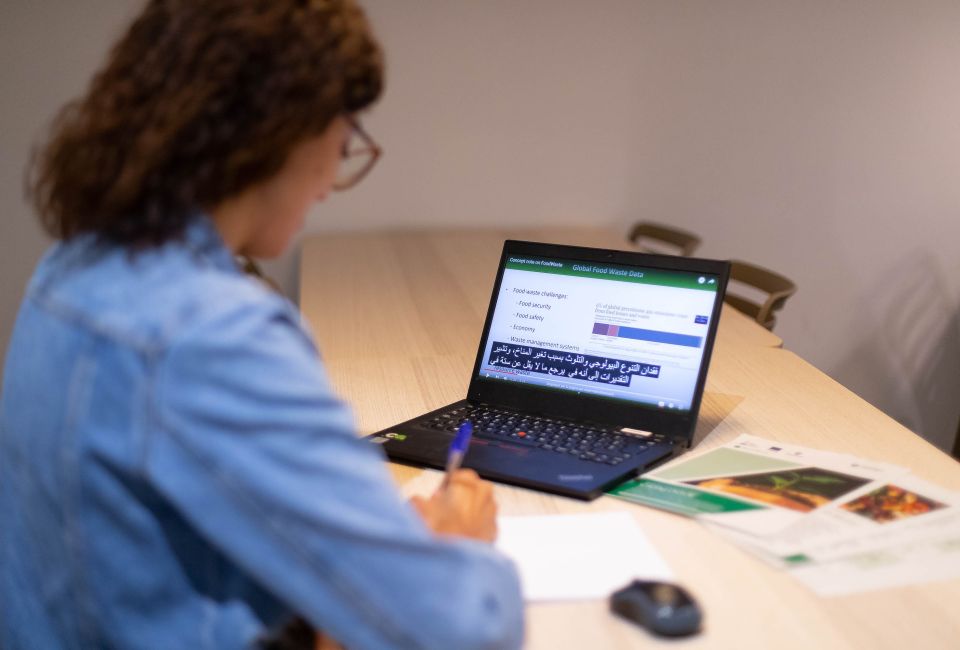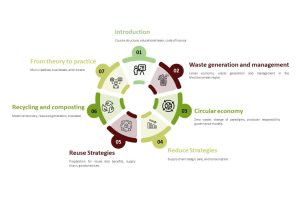BETA TC presents a free online course for municipal waste managers in the Mediterranean region
The course is hosted on Ubiqua, the UVic-UCC educational platform.

Municipal waste management is one of the most important challenges facing the Mediterranean region. There are several factors that contribute to aggravate the situation, such as population growth, the increase in tourism or the absence of adequate waste management policies. In the southern and eastern Mediterranean, the challenges in this area are even more acute, in many cases due to population pressure or the low availability of waste management infrastructures.
The lack of adequate policies is often caused by a lack of access to up-to-date knowledge on the subject, both in terms of technical staff and political representatives of local governments. To help address this reality, the BETA Technology Center of UVic-UCC has created, thanks to the Med4Waste project, an online course open to anyone interested in improving municipal waste management from the perspective of the circular economy and the implementation of zero waste practices in the Mediterranean region.
The course is hosted in Ubiqua, the educational platform of the UVic-UCC, and already has more than a hundred people registered during the first weeks. It has been designed to allow learning at any pace and has a self-assessment system for effective monitoring of the progress of the subject. The language of the course is English, but as a novelty, and in order to promote the dissemination of knowledge throughout the Mediterranean basin, there is also an Arabic version.

Med4Waste, a project to capitalize on previous experiences
The content of the course was based on the results and experiences of the projects on municipal waste management previously funded by the ENI CBC Med program. Their experience has been complemented with scientific literature and with the knowledge provided by Med4Waste partners. In addition, CT BETA has had the support of the Rezero Foundation and the technical advice of the University Teaching and Educational Technology Unit of the UVic-UCC.
The first part, more theoretical, describes the current waste management system present in most Mediterranean countries and addresses the theoretical pillars of the circular economy. The second part has a more practical approach, and is where good practices for waste reduction, strategies to promote reuse, recycling and composting are presented. A final chapter provides advice on how to implement these practices at the level of municipalities and companies as well as at the level of individual citizens.
End of project in Sardinia
After two years, the Med4Waste project will end its activity in an event that will take place from October 24 to 26 in Cagliari, Sardinia. This course is one of the main results it will present, although it has also worked to implement a mentoring program and to elaborate policy recommendations for public administrations that can be useful during the approach of new policies and regulations on urban waste.
The mentoring program has served to provide direct support to six local administrations in the southern Mediterranean, which have received resources to develop or update their municipal waste management plans and to learn about active pilot experiences implemented in other countries thanks to ENI CBC Med projects. In Catalonia, for example, representatives of the City Council of Mahdia, in Tunisia, had the opportunity to visit the BETA TC and the community composting pilots installed in Les Masies de Roda thanks to the DECOST project.
